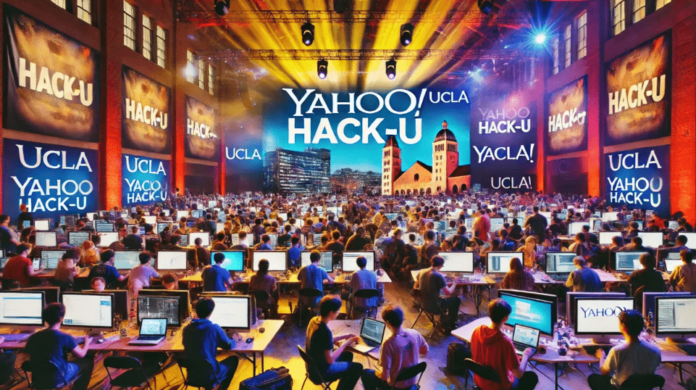The Yahoo 24-Hour Hack-U 2011 event demonstrated the limitless inventiveness and problem-solving skills of students and tech enthusiasts, and it was a huge milestone in the world of technology and innovation. Hack-U (short for “Hack University”) brought together some of the best brains from universities throughout the globe to take part in a rigorous, 24-hour hacking marathon. It was organized as part of Yahoo’s continuous efforts to stimulate creativity and engage with the developer community. This article examines the main ideas behind Yahoo’s 24-Hour Hack-U 2011, as well as the projects that were created and the effect it had on the tech industry.
Table of Contents
1. What is Yahoo Hack-U?
Yahoo organizes a hackathon at universities called Yahoo Hack-U to inspire students and computer enthusiasts to explore the fields of coding, problem-solving, and product development. The 24-hour event usually happens on a university campus, when participants toil diligently to develop original projects from scratch. The purpose of Yahoo 24-Hour Hack-U 2011 is to give students a place to put their knowledge to use, receive guidance from knowledgeable mentors, and get practical experience creating solutions for real-world problems. One of the most remarkable in the history of the series, Hack-U 2011 drew a sizable crowd of competitors eager to demonstrate their inventiveness and technical prowess. Yahoo’s program attempted to encourage students to collaborate, learn, and explore in addition to finding gifted developers.
2. The 24-Hour Challenge: An Overview
Intense coding competition Yahoo 24-Hour Hack-U 2011 gave contestants a single day to develop their ideas into working prototypes. Yahoo personnel briefed the participants on the rules, judging standards, and resources available prior to the hackathon’s start. Following that, teams were allowed to select their own projects, generate ideas, and begin to work. The event was aimed to inspire out-of-the-box thinking and foster a feeling of togetherness. Participants got access to mentors from Yahoo and the tech sector throughout the full Yahoo 24-Hour Hack-U 2011 period. These mentors gave advice, addressed concerns, and shared ideas on a range of topics related to software development, design, and user experience.
3. The Technology and Tools Available
Yahoo gave participants access to a wealth of materials, APIs, and tools to help them realize their ideas. Among the important tools and technology that were accessible were:
- Yahoo APIs: In order to include useful data and services into their projects, participants had access to a variety of Yahoo APIs, including the Yahoo 24-Hour Hack-U 2011 Search API, Yahoo Maps API, and Yahoo Weather API.
- Open-Source Libraries and Frameworks: To facilitate quick development and prototyping, participants were urged to use open-source libraries and frameworks including jQuery, PHP, Node.js, and Python.
- Yahoo Developer Network (YDN): By offering a wealth of lessons, documentation, and assistance, the Yahoo 24-Hour Hack-U 2011 Developer Network helped users discover and effectively utilize Yahoo’s technologies.
- In addition to speeding up the development process, these tools and resources improved participants’ learning experiences by introducing them to industry-standard technology and best practices.
4. Noteworthy Projects and Innovations
Seeing the variety and inventiveness of the projects created during the hackathon was one of the most thrilling parts of the Yahoo 24-Hour Hack-U 2011. The creative solutions that the participants came up with either solved practical issues, provided amusement, or just demonstrated state-of-the-art technology. Among the noteworthy projects were:
- Real-Time News Aggregators: A number of teams created real-time news aggregator apps that gave consumers the most recent news based on their interests by utilizing the Yahoo Search and News APIs. These initiatives showed how Yahoo’s data may be used to produce helpful and individualized user experiences.
- Location-Based Services: A few participants created location-based applications and services, like restaurant finders, event locators, and travel guides, using the Yahoo Maps API. These examples demonstrated how geolocation data can be combined with other APIs to create practical and interesting applications.
- Tools for Social Media Integration: In Yahoo 24-Hour Hack-U 2011, as social media grew in prominence, a lot of teams concentrated on combining Yahoo services with websites like Facebook and Twitter. Through these projects, individuals could keep an eye on their social media feeds, examine patterns, and engage with information in novel ways.
- Apps for Gaming and Entertainment: Using Yahoo’s APIs, a number of players created entertaining and interactive games that demonstrated how technology could be utilized for amusement. These projects demonstrated that hackathons could be just as much about having fun as they were about solving problems since they frequently included inventive gameplay elements and distinctive interfaces.
- The variety of ideas showed the potential of leveraging Yahoo’s APIs and the strength of fusing technical know-how with creativity.
5. The Impact of Yahoo Hack-U 2011
Hackathons in general, the IT industry, and participants themselves were greatly impacted by the Yahoo 24-Hour Hack-U 2011. Among the most important lessons learned and effects are:
- Development of Skills: By working with APIs, frameworks, and technologies, participants had invaluable practical experience that improved their problem-solving, programming, and collaborative skills. Students were forced to think quickly and adjust to new situations in the hackathon setting—skills that are highly valued in the tech sector.
- Networking Possibilities: Students had the exceptional chance to establish connections with mentors, business executives, and other participants through Hack-U. With many of these relationships resulting in internships, full-time positions, and ongoing partnerships, Hack-U served as a springboard for a number of ambitious developers.
- Innovation and Creativity: Yahoo 24-Hour Hack-U 2011promoted an innovative culture by creating an environment where participants could test out new concepts. A large number of the projects created at the event were either contributions to open-source communities or as prototypes for upcoming startups.
- Exposure and Recognition: The competition attracted a lot of media attention, and the victorious teams were frequently highlighted on Yahoo platforms and other tech-related websites. Participants received acknowledgment for their efforts and a chance to demonstrate their abilities to a larger audience thanks to this exposure.
6. The Legacy of Yahoo 24-Hour Hack-U 2011
The Yahoo 24-Hour Hack-U 2011 success helped open the door for further hackathons and developer events in the years that followed. It emphasized how crucial it is to give students and young professionals chances to learn, work together, and create outside of the conventional classroom setting. Hackathons became commonplace in the tech sector as a result of Yahoo’s initiative, which encouraged other tech businesses to hold events along similar lines.
Conclusion
More than just a coding marathon, the Yahoo 24-Hour Hack-U 2011 was a celebration of technical innovation, teamwork, and creativity. Yahoo was successful in organizing an event that had a long-lasting effect on the attendees and the tech community by assembling gifted students, giving them access to state-of-the-art tools, and encouraging a culture of discovery. The legacy of Yahoo Hack-U 2011 serves as a reminder of the power of uniting individuals to push the boundaries of what’s possible in the digital era, as hackathons continue to expand and gain popularity.



